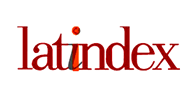A VERSÃO E A INVERSÃO DO ÔNUS DA PROVA NO CÓDIGO DE DEFESA DO CONSUMIDOR
Keywords:
procedure law, burden of proof, standard, consumerAbstract
The Consumer Defense Code establishes a special system, although connected, in relation to civil proceedure law. So much that the CDC rules material rights and process rights on a peculiar way. The reading of the context of the code surprises a great majority of presumptive norms of standard implications, which denotes the verification or attribution the burden of proof something different from the CPC, an attribution are supposed by the legislator itself. The reverse of the burden of proof, properly so-called, only occurs in an expressly case (article 14, §4, of the CDC), in which case, ope judicis, according to art. 6, VIII, the judge must reverse the burden of proving. A system that lowers the consumer’s argumentative burden, affects the standard of evidence to ratify the sufficiency of evidence, and makes it unnecessary for traders to require, in any case, the reversal of the burden of proof. Because the legislator had already positioned the burden as required.
References
BALTAZAR JR., José Paulo. Standards probatórios. In KNIJNIK, Danilo (coord.). Prova judiciária: estudos sobre o novo direito probatório. Porto Alegre: Livraria do Advogado, 2007.
CALAMANDREI, Piero. Verità e verosimiglianza nel processo civile. In CAPPELLETTI, Mauro (a cura di). Opere Giuridiche, vol. V. Napoli: Morano Editore, 1972.
CAMBI, Eduardo. A prova civil: admissibilidade e relevância. São Paulo: Revista dos Tribunais, 2006.
CAPPELLETTI, Mauro. Acesso à justiça: conclusão de um projeto internacional de investigação jurídico-sociológica. Trad. Hermes Zaneti Jr. Processo, ideologias e sociedade, vol. II. Porto Alegre: Sergio Antonio Fabris Editor, 2010.
CASTRO, Cássio Benvenutti de. Ação anulatória: de acordo com o CPC/73 e o Projeto no Novo CPC. Curitiba: Juruá, 2014
DALL’AGNOL JR., Antônio Janyr. Distribuição dinâmica dos ônus probatórios. Revista dos Tribunais, vol. 788, junho de 2001
DI MAJO, Adolfo. La tutela civile dei diritti, vol. 3. 4ª ed. Milano: Giuffrè, 2003.
_____. Le tutele contrattuali. Torino: Giappichelli, 2009.
FELDENS, Luciano. A constituição penal: a dupla face da proporcionalidade no controle de normas penais. Porto Alegre: Livraria do Advogado, 2005.
GIULIANI, Alessandro. Prova (Prova in generale). Enciclopedia del diritto, vol. XXXVII. Milano: Giuffrè, 1988.
_____. b) Teoria dell’argomentazione. Enciclopedia del diritto, vol. XXV. Milano: Giuffrè, 1975.
JAKOBS, Günther. Sociedade, norma e pessoa: teoria de um direito penal funcional. Trad. Maurício Antonio Ribeiro Lopes. Barueri: Manole, 2003.
KANT, Immanuel. Lógica. Trad. Artur Morão. Lisboa: Texto & Grafia, 2009.
KNIJNIK, Danilo. A prova nos juízos cível, penal e tributário. Rio de Janeiro: Forense, 2007.
MACCORMICK, Neil. Usando precedentes. Retórica e o Estado de direito: uma teoria da argumentação jurídica. Trad. Conrado Hübner Mendes e Marcos Paulo Veríssimo. Rio de Janeiro: Elsevier, 2008, p. 197. Ainda, ver DWORKIN, Ronald. Levando os direitos a sério. Trad. Nelson Boeira. 3ª ed. São Paulo: Martins Fontes, 2010.
_____. Argumentação fundada em exceções (arguing defeasibly). Retórica e o Estado de direito: uma teoria da argumentação jurídica. Trad. Conrado Hübner Mendes e Marcos Paulo Veríssimo. Rio de Janeiro: Elsevier, 2008.
MARINONI, Luiz Guilherme. Formação da convicção e inversão do ônus da prova segundo as peculiaridades do caso concreto. Academia brasileira de direito processual civil. Disponível em: <http://www.abdpc.org.br/artigos/artigo103.htm>, acesso em 27/06/15.
_____. Técnica processual e tutela dos direitos. 3ª ed. São Paulo: Revista dos Tribunais, 2010.
MARQUES, Cláudia Lima. Contratos no Código de Defesa do Consumidor: o novo regime das relações contratuais. 6ª ed. São Paulo: Revista dos Tribunais, 2011.
_____; MIRAGEM, Bruno. O novo direito privado e a proteção dos vulneráveis. 2ª ed. São Paulo: Revista dos Tribunais, 2014.
MELLO, Cláudio Ari. Democracia constitucional e direitos fundamentais. Porto Alegre: Livraria do Advogado, 2004.
MIRAGEM, Bruno Nubens. Curso de direito do consumidor. 5ª ed. São Paulo: Revista dos Tribunais, 2014.
MOREIRA, José Carlos Barbosa. As presunções e a prova. Temas de direito processual (primeira série). 2ª ed. São Paulo: Saraiva, 1998.
_____. Regras de experiência e conceitos juridicamente indeterminados. Temas de direito processual (segunda série). 2ª ed. São Paulo: Saraiva, 1988.
OLIVEIRA, Carlos Alberto Alvaro de; MITIDIERO, Daniel Francisco. Curso de processo civil: processo de conhecimento, vol. 2. São Paulo: Atlas, 2012.
_____. Teoria e prática da tutela jurisdicional. Rio de Janeiro: Forense, 2008.
POSNER, Richard A. How judges think. Cambridge: Harvard University Press, 2010
RAPISARDA, Cristina. Tecniche Giudiziali e stragiudiziali di proteziona del consumatore:diritto europeo e diritto italiano. Rivista di Diritto Processuale, v. 36. Padova: Cedam, 1981.
RABITTI, Maddalena; BELLELLI, Alessandra; DINACCI, Giampiero. I remedi fra tutela individuale, tutela colletiva e tutele alternative. In CARLEO, Liliana Rossi (a cura di). Diritto dei consumi: soggetti, contratti, rimedi. Torino: Giappichelli, 2012.
Downloads
Published
How to Cite
Issue
Section
License
Authors who publish in this Journal agree to the following terms:
- Authors retain copyright and grant the Journal of Constitutional Research the right of first publication with the article simultaneously licensed under the Creative Commons - Attribution 4.0 International which allows sharing the work with recognition of the authors and its initial publication in this Journal.
- Authors are able to take on additional contracts separately, for non-exclusive distribution of the version of the paper published in this Journal (eg.: publishing in institutional repository or as a book), with a recognition of its initial publication in this Journal.
- Authors are allowed and encouraged to publish their work online (eg.: in institutional repositories or on their personal website) at any point before or during the submission process, as it can lead to productive exchanges, as well as increase the impact and the citation of the published work (see the Effect of Open Access).


















